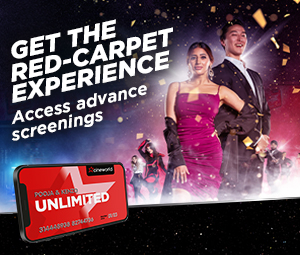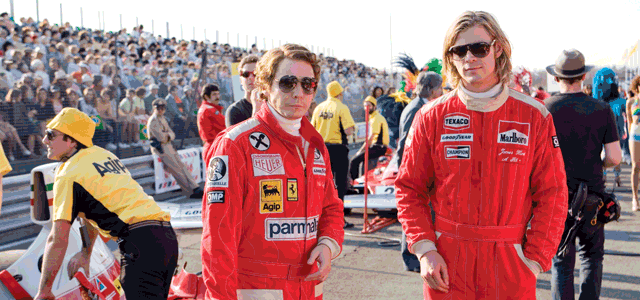

A few months ago, we brought you part one of our on-set interview with Ron Howard for Rush. In part two, the director talks about the challenges of doing justice to the sport and racers James Hunt and Niki Lauda.
Click here to book your tickets for Rush.
Considering all of the rivalries within sport, why choose this one?
I think it had a lot to do with when it occurred, a point when racing was really at its most dangerous. The cars had outgrown the tracks and the safety factor was dubious. These guys were making a very dangerous decision to do this.
For a period of seven, eight years, racing almost had combat statistics. If you talk any of the drivers from that period they’d say that they would go to the first race meeting of the season and it would cross their minds that a couple of these guys wouldn’t be here next year.
When you’re working on a biopic how do you make sure that the characters you present are characters rather than caricatures?
That has so much to do with the writing. I didn’t choose to develop this, I sort of had the opportunity to read a script and run with it. I think Peter Morgan has a wonderful sense of how to get at the reality of a set of characters, but basically you use the facts of their life to inspire a very entertaining, compelling drama and to make some points.
When you do this – and it’s not a documentary – you’re using these people’s lives and certain occurrences to create a drama. And you’re also making your own thematic decisions – what am I interested in focusing on, what am I interested in saying? It’s always frustrating because the more you learn about people and their lives, the more you want to include. I mean the halfway point in the beginning of the ’76 season. That season could be a couple of years of an HBO series, it’s unbelievable what happened in the ’76 season and we’re going to deal with it in about an hour.
So we have to make decisions and we have to consolidate, but I also think filmically it’s a fun opportunity to reintroduce people to the world. I am really trying to pack as many elements of F1 and that lifestyle and era into the movie and that means condensing races and borrowing some events from another year.
So there’s a bit of artistic license going on there…
Oh without a doubt. And Peter Morgan is very open about it too. But it’s always a personal choice, but in trying to approach it with integrity you do try to be honest about the nature of things and who people were. I hope it creates curiosity and that people who want to know more will go and find out.
The thing I’m pleased about is that they’re competitors, but there are no good guys or bad guys whatsoever. There really is this parallel character stuff that happens to be sexy and dangerous and exciting and I think filmically very fresh.

Chris told us how he sent a scene in to you, but he’s not a lot like James. Why did you choose him?
Honestly, he auditioned for it and was dazzling. Physically he’s right and I spoke to people who had worked with him and who were very complementary of his talent and his potential, even though there wasn’t all that much to see on screen, but he really won it with an audition and he did it while he was on location. He did it himself. He taped it and sent it in.
I’d met him – I liked him. I liked him in Thor. I talked to people who said he was really dedicated and interesting and just from this little audition that he did you could see he had a nuance and a relaxed, athletic, cool masculinity. And Peter and I just felt like he could do it. So he won the role and I’m very impressed with him. Both of these guys are very hardworking creatively and they’re really digging for all the nuances, all the detail and I’m having a great time directing both Daniel and Chris.
We’re in a UK airbase – so far this film has an indie feel to it, which must be quite a change for you. How are you finding that?
Every movie you do you always feel pinched (financially). Us directors could go on and on – there’s always another story to tell; another idea to explore; another way to shoot. But let’s just say in this case, we’re a pretty large indie! And far from approaching it the way a studio would so for me, I’m not finding it shocking, but of course I started off directing for Roger Corman and this film isn’t as basic as that.
And even though it’s very ambitious movie, we’re moving quickly, we’ve rehearsed carefully and we’re shooting quickly… But it’s also infusing it with honesty – I hope (I mean, again we’re three weeks in and I’m talking to you like we’re finished) it has a feel, not so much like a sports movie, but more like rock’n’roll behind the scenes.
How are you coping with the genre?
I don’t think of this as a genre movie – I’d rather think of it as a character study, but I think everyone in the marketing department would probably wince if they heard me say that. I don’t think that means it has to be sedate and internal.
Because of the nature of who these people are, it’s adventurous and it’s dangerous and sexual, particularly in 1976, and it’s heightened and I think it has the chance to be a very entertaining movie. A studio may be a little reluctant to throw itself behind a movie like this fully right now, because it’s not a genre movie.
Do you think Senna helped?
Well, we were already underway before it proved itself to be so wonderful, but it’s helped us sustain our momentum. And there are lots of people talking about making F1 movies right now.
It’s a subject that’s been of interest for some time now. There are other projects out there. I think it’s probably because technology has reached a point where you can actually do these set extensions and you can do certain things with the cars to heighten what it is you shoot. You can digitally add cars to get the right number so that it feels authentic, and it’s expensive but it’s not obscene or beyond the realms of possibility. I think we will wind up using every tool at our disposal in terms of modern cinematic technique to try to make a movie that’s in time with ’76.

Daniel said he met with Niki and Peter’s a friend of his… how much input has he put in so far?
I’ve had a chance to meet him three or four times. I had a real pleasure… my second meeting with him was at Silverstone and he does commentary for Austrian and German television but he doesn’t report during the race. He does pre- and post-race analysis and then just watches the race, so I got to sit with him while he was watching the race and he was just describing it to me, which was just amazing because three minutes before anything would happen he would say “this guy’s fucked, he has to go to the pits now” or “he’s going get lapped” – he could just see it. It was really remarkable.
But there were no script approvals – he hasn’t read the script. He’s talked a lot with Peter and Peter’s talked a lot with him. I’ve spoken to him; he’s been a great resource – just the other day we called to ask him a question about his behaviour on the grid prior to a race and he’s made himself very available, but he has no control.
Is the Lauda/Hunt story very well known in the US?
Only F1 fans and there’s a growing number in the US, but a small group have always been there and going back to Long Beach… There’s a growing interest in F1, but it’s showing up more on TV. Cable’s been good for F1. We haven’t even had Top Gear on any of our networks.
My son and my son-in-law both love that show and I think they’ve been getting it on the internet – I don’t know how they’ve been seeing it – but I know they love it. And they don’t think of themselves as F1 fans, but they still love the show. But when you talk to people from NASCAR [?] and the Indie circuit, they like motor sports, so if they think something is authentic, they’re going to be into it. I don’t think the movie’s going to be a sure bet for American audiences, but…
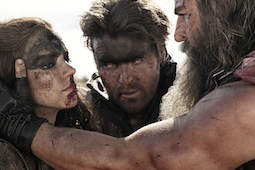
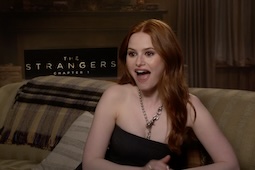
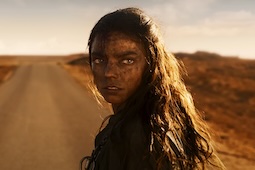
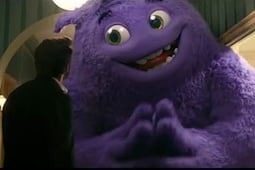
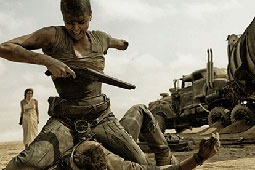
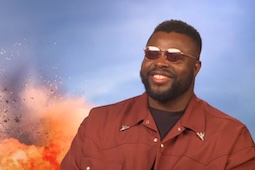
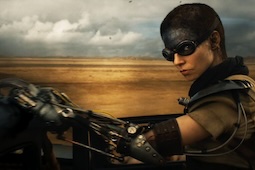
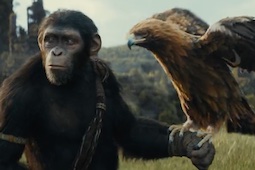
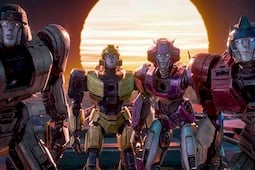
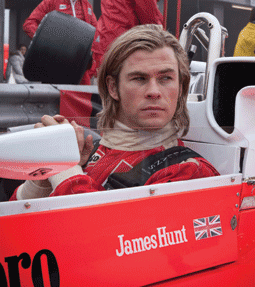
.jpg)


.jpg)
.png)

